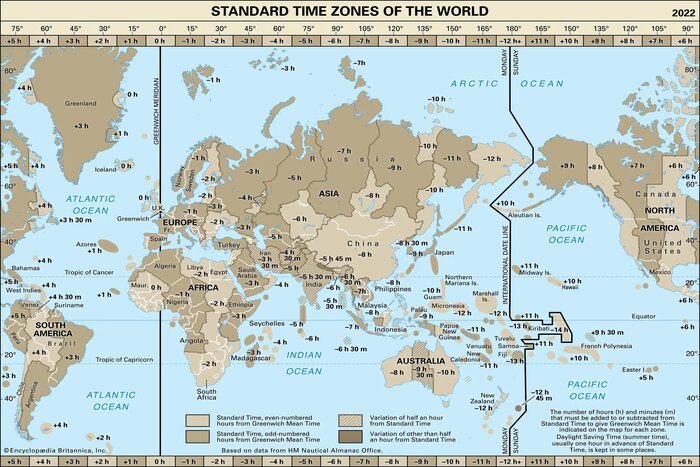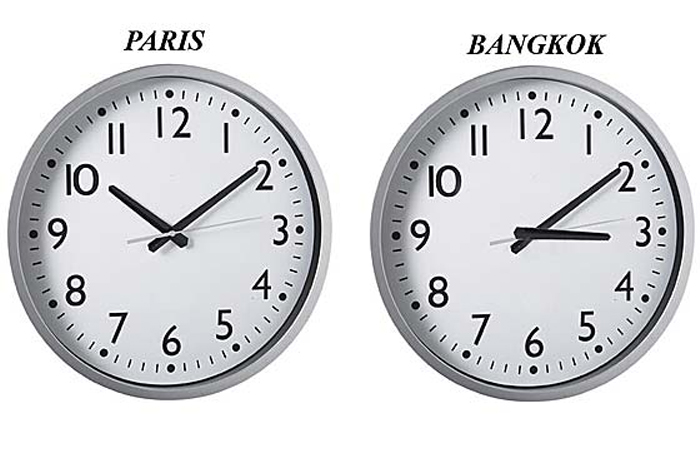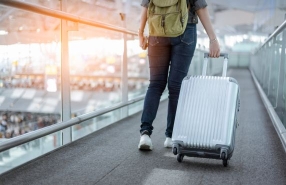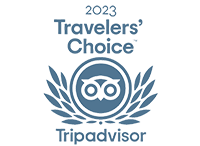
Planning a trip to Thailand goes beyond booking flights and hotels. Understanding the time in Thailand is crucial for a successful getaway. Organizing your activities while considering the Thailand time zone can significantly enrich your experience. This guide is designed to provide you with accurate information and practical advice, making it easier for you to adapt to the Thai rhythm and fully enjoy your stay in the land of smiles. Whether you're exploring Bangkok's temples, relaxing on Phuket's beaches, or wandering through Chiang Mai's markets, mastering the time zone Thailand operates in will help you make the most of every moment of your journey.
I. Thailand time zone
1. Overview of Thailand time zone
Thailand is located in the ICT (Indochina Time) time zone, which corresponds to UTC+7. This means the country is 7 hours ahead of Coordinated Universal Time. For example, when it's noon UTC, it's 7:00 PM in Thailand. Unlike many Western countries, Thailand does not observe daylight saving time, which simplifies trip planning regardless of the season. This constant time throughout the year is a significant advantage for visitors.
To convert Thailand time zone to UTC, follow these steps:
For example:
If it's 3:00 PM in Thailand, it will be 8:00 AM UTC (15:00 - 7:00 = 8:00).
If it's 8:00 PM in Thailand, it will be 1:00 PM UTC (20:00 - 7:00 = 13:00).
Important points to note:
If the subtraction takes you past midnight, remember to go back one day. Example: 3:00 AM in Thailand corresponds to 8:00 PM UTC the previous day.
Thailand does not observe daylight saving time, so this 7-hour difference remains constant throughout the year.
For accurate conversion, use the 24-hour format to avoid confusion between AM and PM.
2. Countries have the same time zone with Thailand
When planning your trip to Thailand, it's wise to consider neighboring countries that share the same time zone (UTC+7). This knowledge can greatly facilitate the organization of your stay, especially if you're planning to visit multiple destinations in the region. Countries sharing this time zone with Thailand include Vietnam, Cambodia, Laos, Western Indonesia (including Jakarta), as well as some regions of Russia such as Krasnoyarsk.
This time similarity presents several advantages for travelers. Firstly, it greatly simplifies planning a multi-country tour, as you won't have to adjust your schedules when moving from one destination to another. Additionally, when booking flights between these countries, you can easily calculate travel times and arrival times without having to juggle different time zones.
II. Time difference between Thailand and other global destinations
Understanding the Thailand time zone and its differences with other countries is crucial for international travelers planning a trip to Thailand. Let's examine the time differences between Thailand and other popular destinations. This knowledge will help you better plan your journey, manage jet lag, and stay in touch with loved ones back home.
1. Time difference between Thailand and France
Time difference between France and Thailand? France alternates between two time zones throughout the year, affecting its time difference with Thailand:
Winter Time (late October to late March): France is at UTC+1. It's 6 hours behind Thailand. 8:00 AM in Paris = 2:00 PM in Thailand.
Summer Time (late March to late October): France moves to UTC+2. It's 5 hours behind Thailand. 8:00 AM in Paris = 1:00 PM in Thailand.
For French travelers visiting Thailand, time difference between France and Thailand means earlier starts to the day and earlier evenings. It's advisable to gradually adjust your rhythm to minimize jet lag effects.
2. Time difference between Thailand and the United Kingdom
The UK, located in the GMT/BST time zone, has a significant time difference with Thailand, varying between 6 and 7 hours depending on the time of year. This variation is due to the British daylight saving system. During British Summer Time (BST), the UK is 6 hours behind Thailand, while during standard time (GMT), it's 7 hours behind. This means when it's noon in the UK, it's already 6 or 7 PM in Thailand, depending on the season. For British travelers heading to Thailand, this means advancing their watches by 6 or 7 hours upon arrival, which can lead to significant jet lag, especially when traveling eastward.
3. Time difference between Thailand and other Asian countries
The time in Thailand is central to Asian time zones. Compared to its neighbors, it has the following differences: same time as Indonesia (Jakarta); one hour behind China, Singapore, Malaysia, and the Philippines; two hours behind Japan and South Korea. To the west, Thailand is one and a half hours ahead of India and two hours ahead of Pakistan. These differences may vary seasonally in some countries, and multiple time zones in larger countries should be considered.
III. Best time to visit Thailand based on Thailand time zone
The time zone Thailand uses remains constant at UTC+7 throughout the year, as the country does not observe daylight saving time. During the dry season (November to February), shorter days offer soft light ideal for exploring ancient temples and colorful markets. The hot season (March to May) extends daylight hours, allowing visitors to fully enjoy beaches and paradise islands into the evening. The rainy season (June to October) brings refreshing showers, creating an atmosphere conducive to discovering cultural sites and savoring street food.
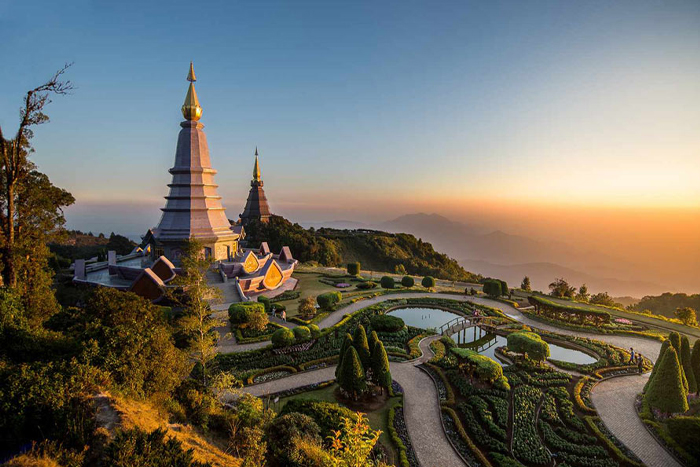
This seasonal variation enriches the tourist experience, offering various opportunities to immerse oneself in Thai culture, whether visiting Buddhist sanctuaries, participating in traditional festivals, or exploring Bangkok's vibrant nightlife. Understanding the local rhythm helps visitors plan their activities efficiently, whether it's a morning walk in a floating market, a jungle excursion, or a relaxing evening on a tropical beach, ensuring a complete Thai experience.
IV. Tips for adapting to the Thailand time zone on your trip to Thailand
Time difference can disrupt your biological rhythm when traveling to Thailand. To fully enjoy your stay from the start, it's important to quickly adapt to the new time zone. Here are some practical tips to follow before, during, and after your journey to minimize the effects of jet lag and acclimate more easily to the local time in Thailand:
1. Before your trip
- Gradually adjust your sleep schedule a few days before departure
- Plan to arrive in the late afternoon or evening if possible
- Ensure you're well-rested before departure
2. During your flight
- Set your watch to the destination time as soon as you board
- Try to sleep if it's nighttime at your destination
- Stay hydrated and avoid alcohol and caffeine
3. Upon arrival and during your stay
- Expose yourself to daylight as soon as possible
- Immediately adopt the local rhythm for meals and sleep
- Take a short nap (20-30 minutes max) if necessary, but no longer
- Stay active during the day to promote good night sleep
- Avoid heavy meals and alcohol in the first few days
- Be patient, adaptation may take a few days
These strategies should help you minimize the effects of jet lag and fully enjoy your stay in Thailand from the moment you arrive.
In conclusion, mastering Thailand time zone is essential for optimizing your travel itinerary and fully immersing yourself in the wonders of this enchanting country. Whether you're captivated by Bangkok's bustling streets, unwinding on the tranquil shores of Phuket, or exploring the cultural treasures of Chiang Mai, aligning yourself with local time ensures seamless transitions and maximizes your exploration time. By leveraging the practical insights provided in this guide, you'll navigate Thailand's time zone with ease, allowing you to savor every moment of your journey through the Land of Smiles.
For a satisfying experience that exceeds your expectations, please CONTACT ATOUR ASIA,
Thailand Travel Agency now.

